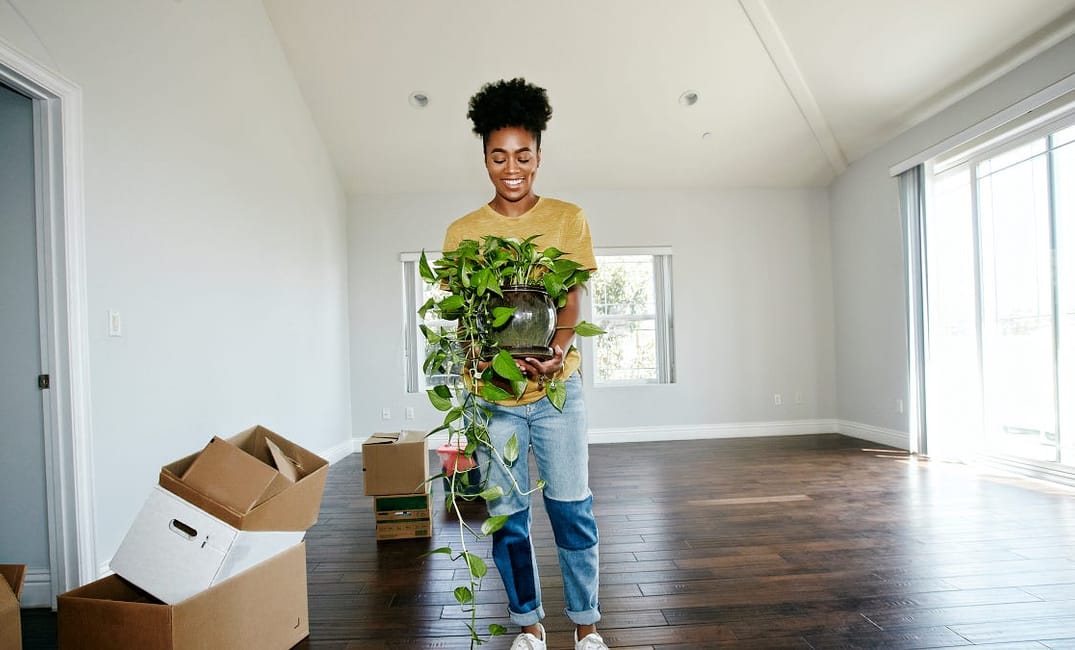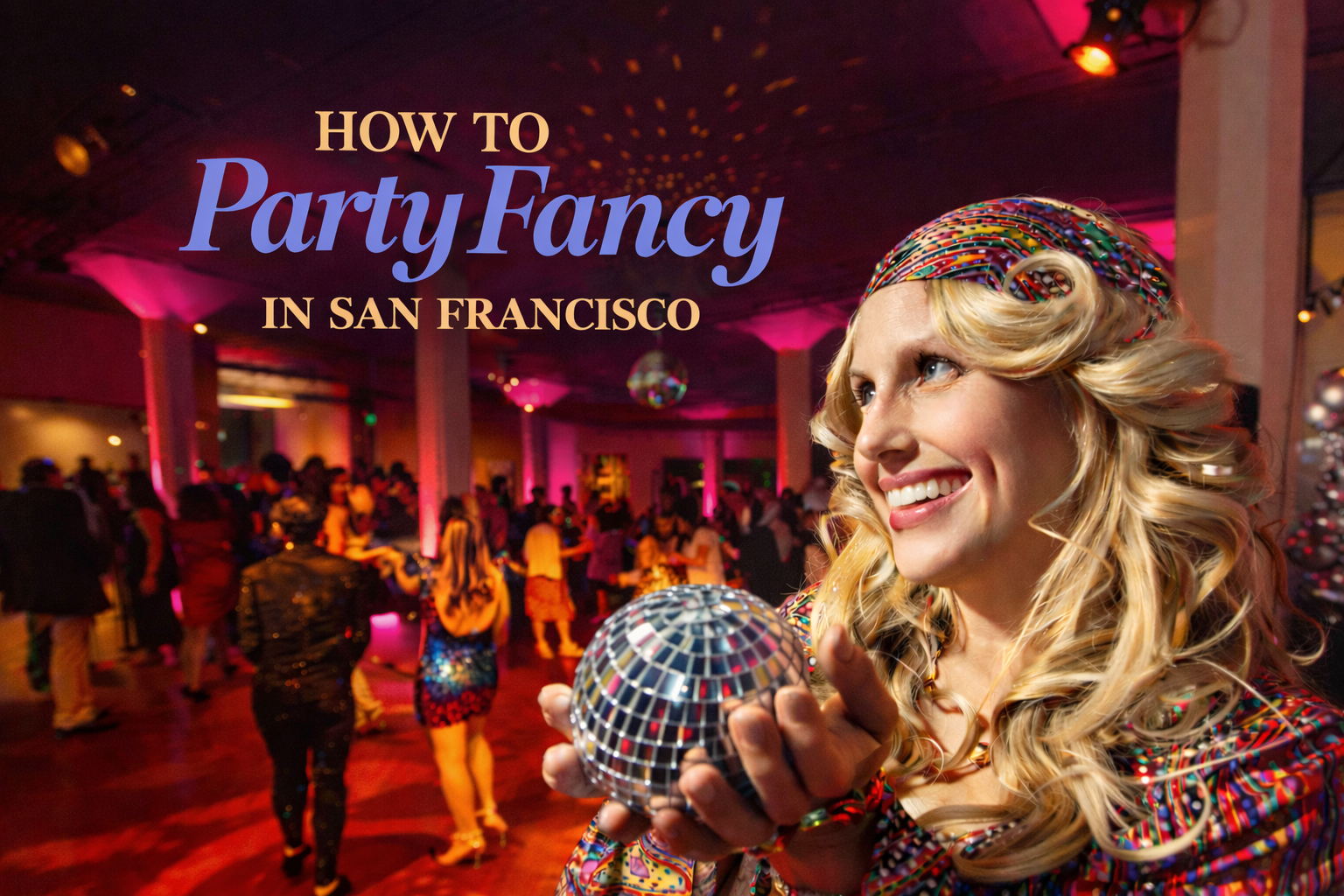The Californian’s Dilemma

This week in The Bold Italic, we are publishing The Californian’s Dilemma, a series that goes beyond the headlines about the “California Exodus,” featuring essays from San Franciscans about why they’re choosing to stay or leave. Check back daily for new essays.
It’s 2002. I’m 12 years old, from an “almost poor” family, and have never left my hometown in Ohio. Life consists of my family, school, a creek with crawfish in it, and sometimes, if I’m really good, the mall. The most exciting place I’ve ever been is a nearby farm that’s run by a large Amish family who lets you chase their pet chicken right before they wring its neck for dinner.
Anticipating that my lack of life experience might prove dangerous in the future, my mom booked me a plane ticket to visit my godmother for a week, who lived in the Bay Area. Once there, she took me to San Francisco. I saw my first skyscraper and had my first shouting match with a complete stranger on the street who wanted me to buy his mixtape. It was love at first sight. Four years later, I became a Bay Area resident.
Sign up for The Bold Italic newsletter to get the best of the Bay Area in your inbox every week.
I lived in San Francisco for 14 years, but I could only afford about three of them. The first 11 were spent working unpaid internships while crashing at my godmom’s; dropping out of college to find work; couch surfing in a warehouse; sharing a five-bedroom in Ingleside with seven housemates (a pretty tame housemate situation, if we’re being honest); and depending way too much on various significant others, before finally finding a Real Job that paid Real Money and allowed me to see my city for what it is. For a while, just existing in the Bay Area was a point of pride for me. Successfully paying another month’s rent was an accomplishment.
It wasn’t until 2016 that I was able to experience what some would say makes the city worth living in. Camping in Yosemite! Wine tasting in Napa! Road trips to L.A.! All that good shit. (The irony that none of those activities are in San Francisco didn’t dawn on me for months; I chalked it up to “proximity!”) In that packed seven-person house, I met a roommate who moved out with me to rent a normal, quiet two-bedroom flat in Potrero Hill for a below-market rate of $3,350 per month.
I’d wager that every millennial in San Francisco has said, ‘I’m thinking of moving out of this place,’ most likely followed by one of these cities: L.A., Seattle, Portland, Houston, or New York.
As the city burgeoned into a playground for techies and a world-famous haven of venture capital, the rents rose, and my desperation to remain “from here” rose with them. Having spent the bulk of my life either homeless or dangerously close to it, even during The Golden Years™️, I stunk of workaholism, terrified that I would somehow underperform, lose my job, and find myself back at square one. I saw friends about once a month, always just a little too broke to spend $75 on a single brunch.
If I stopped to think about it for one second, maybe I’d have noticed how, not unlike in Ohio, my finances kept my world teeny-tiny. I always wondered if my constant, self-inflicted terror was justified. Then Covid-19 happened.
The headlines we’re seeing in late-stage 2020 would have been unbelievable last year. We’ve known about the mass exodus of Black San Franciscans for years — there’s even a movie about it — but I never could have foreseen the predominately white, affluent techies packing up and moving back to Boston like they are now.
I’m one of the lucky ones. My job at a tech nonprofit has been remote-friendly for more than a decade; the office shut down in mid-March with barely a hiccup in productivity. Nothing dramatic happened. I didn’t lose my job, and I don’t have a family to care for, so when San Francisco ground to a halt, my only duty was to stay home, slow the spread, and support my community as best I could.
A couple weeks in, as my favorite restaurants in the Richmond and Dogpatch began to struggle, I noticed something: My bank account had a comma in it. Bills didn’t immediately gobble it up. For perhaps the first time in my life, I had nothing to spend my money on. No bus passes, no lunches, no birthday drinks with co-workers, no craft fairs or meetups, not even my gym membership. I threw as much of it as I could at my favorite businesses within walking distance — Dandelion Chocolate, Neighbor Bakehouse. The comma was still there. Weeks passed, and another payday came and went.
Holy shit, I was saving money!
By Day 44, I had walked to the Sunset and back. I had eaten every chocolate bar Dandelion had to offer. I had a panic attack sitting by myself in a parklet in the Mission, wondering if I would break social distancing guidelines by petting the cute chihuahua panting in front of me. I thought of what San Francisco meant to me and realized that “proximity” no longer mattered. Nothing was open. The city had become so small — smaller than my childhood world. I made a melodramatic inner monologue about how Capitalism Finally Lost. (Because the shops are closed, I guess?)
I’d wager that every millennial in San Francisco has said, “I’m thinking of moving out of this place,” most likely followed by one of these cities: L.A., Seattle, Portland, Houston, or New York. I went home and thought of my brother in Portland, whom I hadn’t seen since his wedding in Pacifica five years ago. My heart sank when I realized why: I could never afford the airfare.
As I wander around Portland looking for new memories, I meet more Bay Area expats than I do actual Portlanders. And they all want to go home, too.
The next day, I applied to rent a one-bedroom apartment just for myself, sight unseen, in a trendy district in Southeast Portland, for nearly $600 less than our flat. I was approved within hours.
The rest is anticlimactic history: I booked movers, said goodbye to my friends via Zoom, and by May I’d packed up and left. That was it. Three months later, one of those friends followed me here, another moved home to Stockton, and my old roommates got married. I adopted a cat, and now I’m saving to buy my first car. I’m going back to school to finish my degree. None of this was remotely possible in my expensive shoebox in San Francisco. It feels like a happy ending, and I suppose it is.
Of course I miss Dandelion, people-watching in Japantown, and grabbing my binoculars to gaze at birds with other bird people in the Presidio. I’ll make new memories, but no experience will ever overwrite the trials of being homeless in the country’s most expensive metro and living to happily tell the tale. I was around for Batkid, and Alternative Press Expo, and every Corgi Con for six years straight.
Here in PDX, a beautiful place with loads of charm, great food, and dope birds to gaze at, I’m starting from scratch at 30 years old. It’s a little overwhelming. And the worst part is, as I wander around Portland looking for new memories, I meet more Bay Area expats than I do actual Portlanders. And they all want to go home, too.
Do I miss it? Fuck yes. But like any toxic relationship, I can love San Francisco from afar and acknowledge that we’re not meant to be together. As a Black American woman in Portland during an incredibly contentious racial justice movement, with any luck I’ll graduate college and become an expat next. But I’ll never move back to San Francisco, and that’s okay.
(I will be back for Corgi Con, though.)







